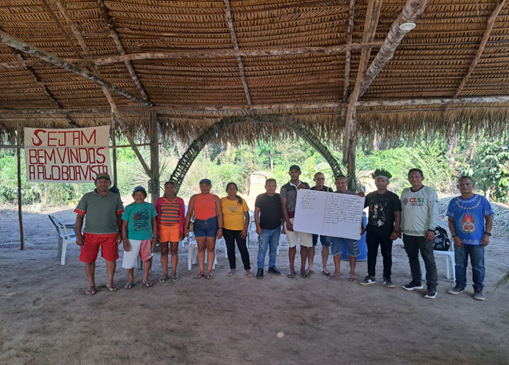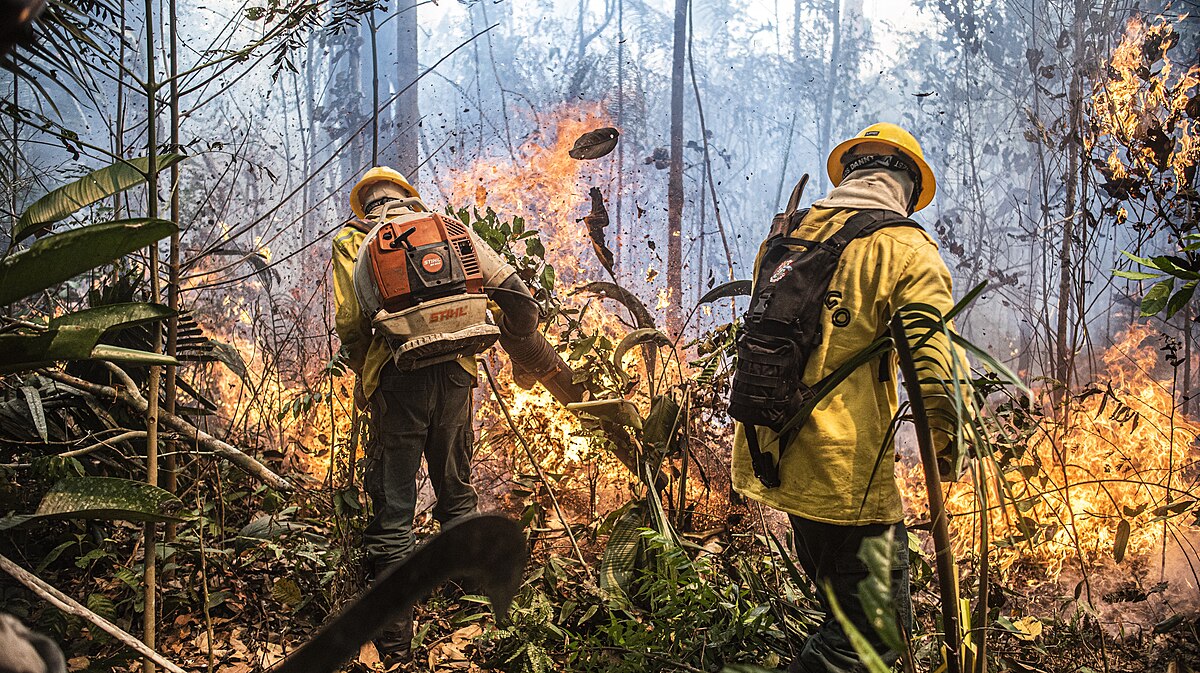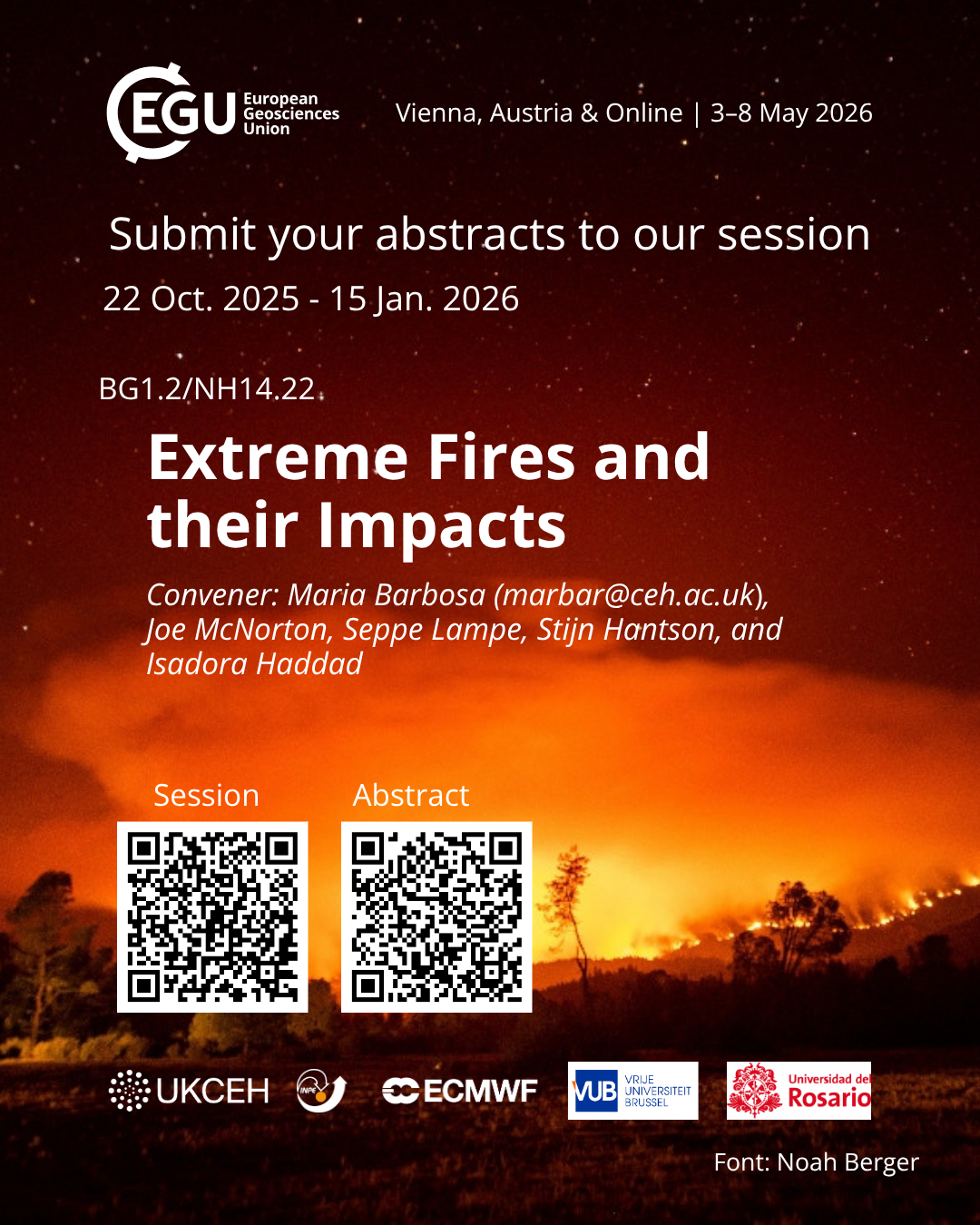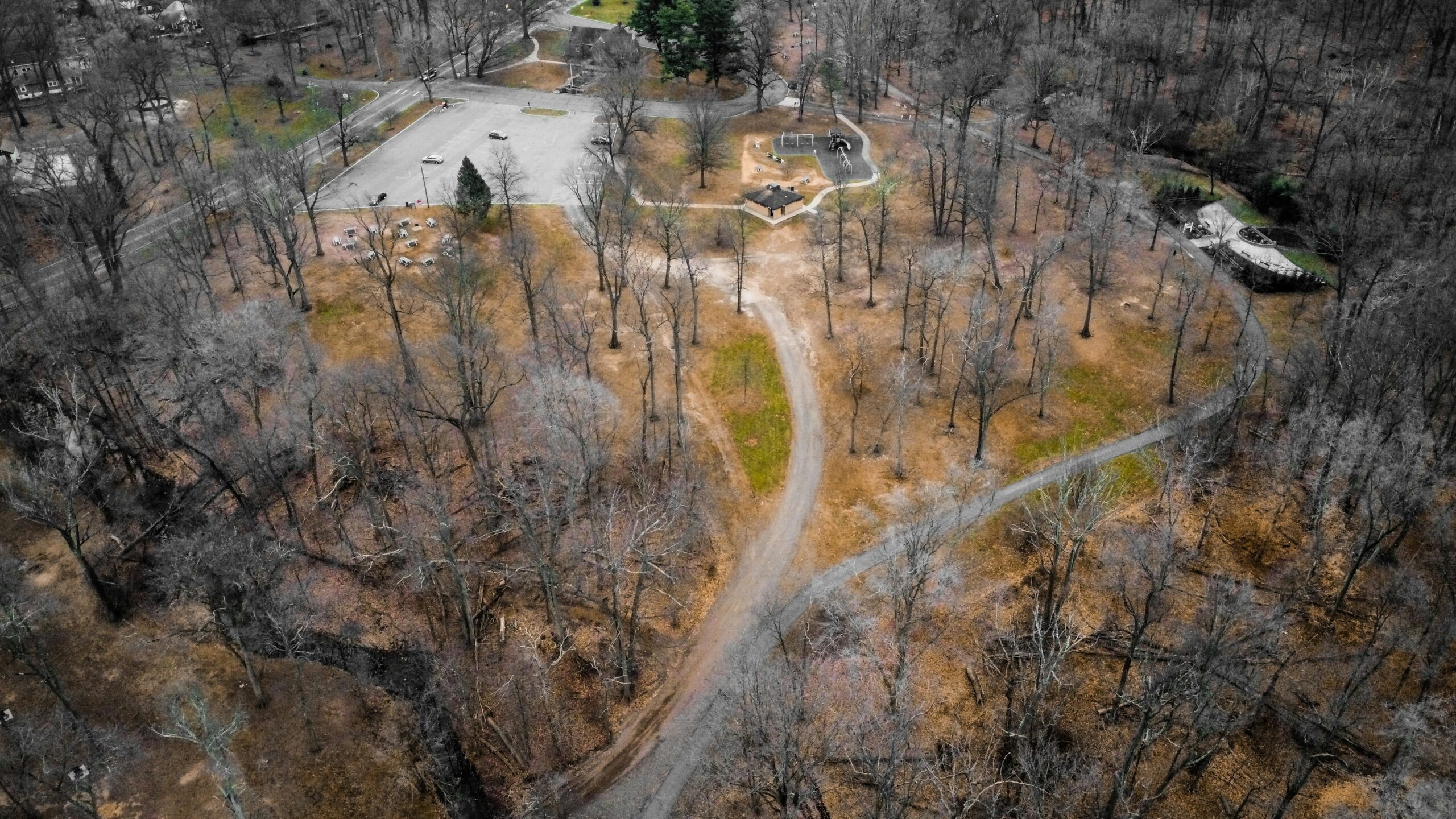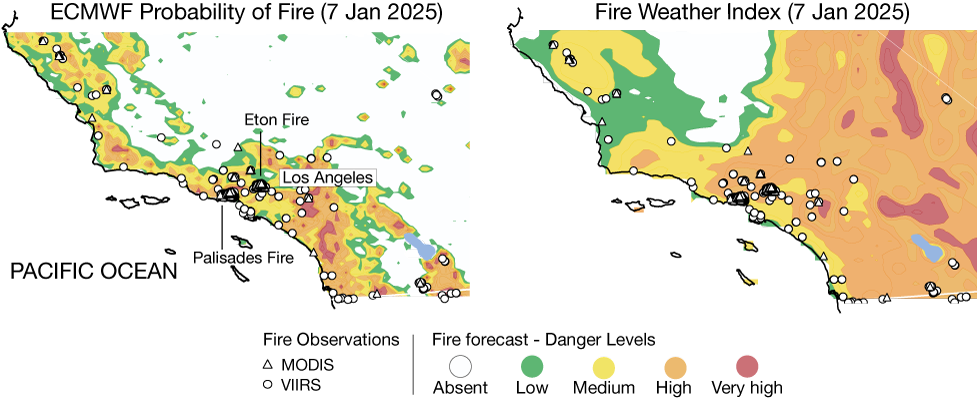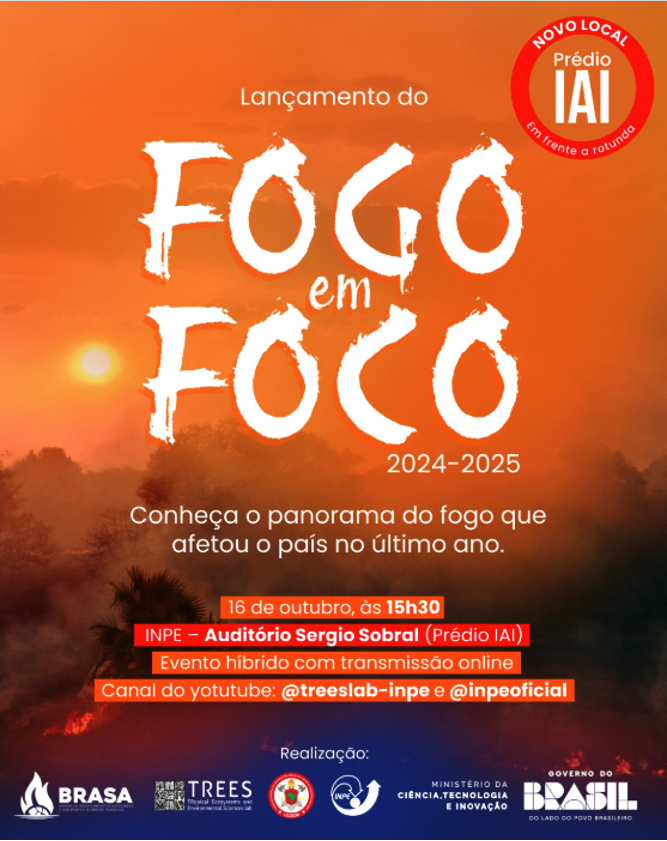
Brazilian members of the State of Wildfires Project have launched their “Fogo em Foco 2024–2025” (Fire in Focus 2024-25) report alongside the 2024-25 edition of the State of Wildfires report. With COP30 Belém around the corner, the report led by the Instituto Nacional de Pesquisas Espaciais (INPE) highlights why policymakers should be so concerned about recent extreme wildfire seasons in South America, and how policymakers, can do to address the problem.
Wildfires 2024–2025
The year 2024 marked a turning point in the intensification of wildfires in Brazil and worldwide. Between January and December alone, Brazil recorded more than 57,000 incidents related to droughts, dry spells, heatwaves, and forest fires, according to the National Secretariat for Protection and Civil Defence (SEDEC, 2025), with material losses exceeding R$140 billion.
The spread of fires across multiple biomes, driven by land-use and land-cover change, deforestation, extreme weather events, and high temperatures, reveals the country’s growing vulnerability and poses urgent challenges to public management, environmental conservation, and population safety.
The “State of wildfires” and “Fogo em Foco” initiatives
State of Wildfires is a global initiative coordinated by researchers from different continents, bringing together data and analyses on the occurrence, magnitude, and impacts of wildfires in all countries for a given period. This year, the assessment covers fire events worldwide between March 2024 and February 2025.
Building upon this international collaboration, Brazilian researchers and the Military Fire Brigades (Corpo de Bombeiros Militares – CBM) of several Brazilian states joined efforts to produce a national edition, providing an unprecedented synthesis of fire dynamics across Brazil. By combining scientific and operational data, the initiative aims to support public policies and strategic actions for fire prevention and response. The result of this joint effort is presented in the “Fogo em Foco: 2024–2025” report.
What the Reports Present
- A national assessment of wildfires in 2024–2025, based on MODIS/MCD64A1 (NASA) and Global Fire Atlas data;
- A historical ranking of the most critical areas across states, municipalities, and protected regions;
- Climatic analyses using ERA5 (ECMWF) and identification of temperature and precipitation anomalies;
- Technical contributions and accounts from state Military Fire Brigades;
- Strategic recommendations for integrated fire management and the strengthening of inter-institutional governance.
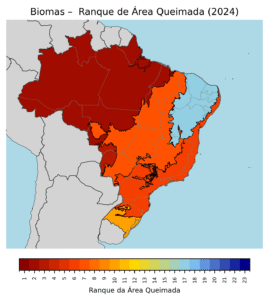
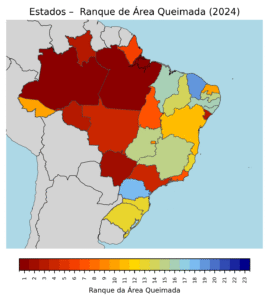
Significance of the Initiative
The “Fogo em Foco: 2024–2025” report represents a milestone in cooperation between science, public administration, and operational forces, consolidating a technical and scientific overview of the wildfire situation in Brazil.
The report aims to inform and support:
- the formulation and improvement of public policies for prevention, response, and recovery;
- the territorial prioritisation of emergency and management actions;
- the strengthening of cooperation among federal, state, and municipal institutions; and
- the reduction of the socio-economic and environmental impacts associated with wildfires.
Resources
Join the Launch Event!
Details
Title: National Launch of the Article “State of Wildfires 2024–2025” and the Report “Fogo
em Foco: 2024–2025”
Date: 16 October 2025
Time: 15:30 (Brasília time, UTC−3)
Venue: “Roger Roniat” Auditorium, LIT Building, INPE, São José dos Campos, SP
Live stream: www.youtube.com/@treeslab-inpe
Organised by: BRASA Research Network, TREES Laboratory/INPE, and LIGABOM
Programme
Moderator: Dra Débora Olivato – INPE
15:30 – Opening remarks: Dr Liana Anderson – INPE
15:50 – Lieutenant Colonel Jusciery Rodrigues Marques – TC CBMMT, Operational Advisor at CNCGBM-LIGABOM and Parliamentary Advisor at CBMMT
16:00 – Lieutenant Colonel Leonardo Rodrigues Congro – CBMMS
16:10 – Presentation of Fogo em Foco: 2024–2025 results: MSc Débora Dutra – INPE
16:30 – Discussion
16:50 – Closing remarks: Dr Fabiano Morelli – INPE
Target Audience: public managers, researchers, Military Fire Brigades, environmental agencies, Civil Defence
